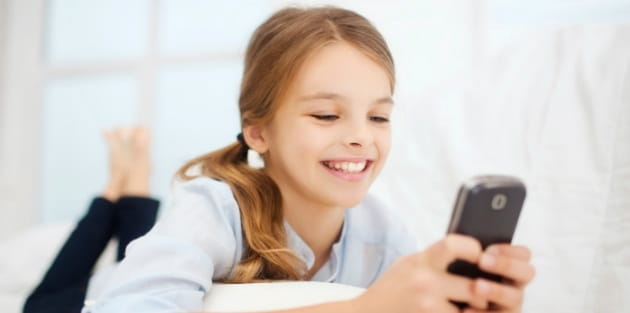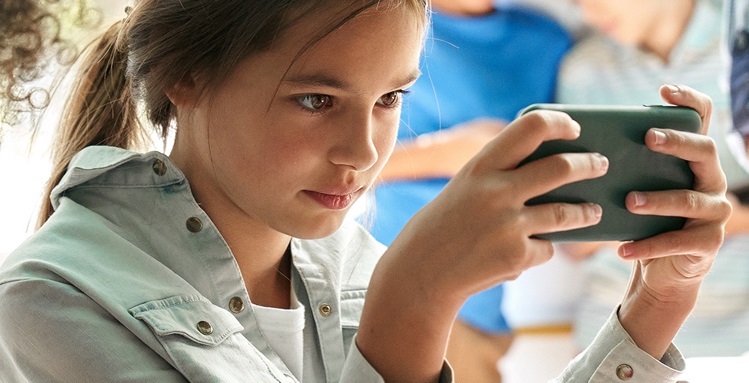Last Updated on November 7, 2024 10:46 pm by INDIAN AWAAZ

AMN/ WEB DESK
In a major initiative Australian government has decided to introduce legislation to ban children under the age of 16 from using social media, with penalties for platforms like Facebook, Instagram, and TikTok if they fail to enforce it.
The groundbreaking legislation comes amid the growing concerns over the impact of social media on young people’s mental health and safety. The initiative is designed to enhance online safety for young people and hold tech companies accountable.
Prime Minister Anthony Albanese at a press conference today confirmed the proposal, stating that the government aims to introduce the legislation in the Parliament this month. He emphasized the government’s commitment to protecting children online. However, it has not been specified how platforms should enforce the age limit.
Communications Minister Michelle Rowland mentioned that companies could choose their own methods, possibly including biometric scans or age checks. While there will be no penalties for under-16s who access social media or for their parents, platforms that fail to take reasonable steps to block young users could face fines.
This move is part of the government’s increased focus on regulating major tech platforms.
More about Social Media
Since 2019, children aged 8-18 have increased their overall device usage by over 17% – much of which has come from an increase in social media use.
These changes can be worrisome for parents, since most social media apps are not designed for children under 13 and can expose them to inappropriate and dangerous content. Especially for younger kids, popular social apps like Instagram and TikTok can contain misinformation and graphic content that they have no way to identify or understand. As parents, we have to keep all of this in mind, along with many other factors, when we finally decide: Is my child ready for social media?
Social media platforms do present some risks for young people. These include online bullying and harassment, exposure to misinformation and inappropriate content, grooming, privacy breaches and excessive use. Stories documenting the potentially harmful effects of social media are rarely out of the news. Studies claim links between social media and poor mental health and low self-esteem. These findings are concerning, and there is no doubt social media may negatively affect some young people’s wellbeing. However, it is not a straightforward question. While these studies might find a correlation or link between excessive social media use and poor self-esteem, for example, they rarely point to direct causation. Young people already experiencing low self-esteem and depression may use social media significantly more than others.

What is the “right” age for social media?
Social media networks advertise that they require a minimum age of 13 for use of their platforms. However, this definitely doesn’t mean that every 13-year-old should immediately jump into the world of social media! It’s true that no child under 13 should be using these apps, but their maturity, level of development, and track record of responsibility all play a role in their readiness for social media use once they reach their teens.
As parents, we can observe these qualities in our kids, in addition to how well they follow instructions and handle relationships, expectations, and communication, to decide if they are ready for social networks at 13 or if we should work with them to develop those skills first.
I found out that my child has a secret social media account – what do I do?
According to Dr. Nicole Beurkens Child psychologist If your child has created a social media account without you knowing, it’s time to have a direct and loving conversation with them about their technology use and your expectations. Make sure that you listen to them just as much as you expect them to listen to you, and try to gain a fuller understanding of their choices. Talk with them about the dangers of social media overuse, and come up with a plan to ensure they engage with social media in a constructive and safe way.
Implement or revisit existing parental controls settings to keep an eye on their internet activity while they learn how to be more responsible and appropriate online. I always recommend Qustodio for this purpose, because it easily allows you set time and content restrictions for every child in the family. You can also monitor their social media use in order to keep them safe online and help them develop healthy electronics use habits.
Introducing your child to social media is a process. Just like any other aspect of parenting, it’s important to be open with your child and work together with them to set healthy boundaries and expectations for their electronics use. Remember that setting them up with their first account isn’t the end of the journey. Check in with them from time to time to make sure that they feel good about the way they use technology, and be direct about any concerns you might have should they arise. This article on digital resilience contains helpful tips and reminders to help build social and emotional literacy while navigating social media with your children.
As parents, our most important goal is to provide our children with learning experiences that help them become healthy and responsible adults. Social media has the potential to be a helpful learning experience when introduced and supported in appropriate ways.
